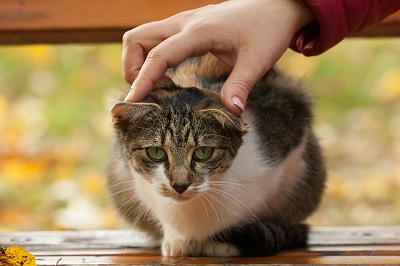Causes of Heavy Breathing in Cats
Causes of Heavy Breathing in Cats
Panting is not characteristics of cats. When they pant, it usually means they have difficulty in breathing. Heavy breathing in cats can have different underlying diseases as causes. Many of them represent serious health condition and can be fatal. For that reason, veterinarians consider heavy breathing in cats emergency that needs prompt action. They highly recommend taking cat immediately to a vet. One of the reasons that can result in dyspnea or heavy breathing is cardiomyopathy that leads to a heart failure. Therefore, we need to minimize stress in affected cats during transport. However, to act immediately, we need to identify that a cat struggles with heavy breathing. In other words, we need to recognize it. While some cats would pant, cough, continually opening their mouth trying to breathe in more air, other cats will look like trying to vomit. Veterinarians suggest observing cat’s chest because their movements will indicate whether a cat has dyspnea. Difficulty in breathing will be accompanied by a bigger extension of the chest than in normal cats. Another indicator is abdomen and its movements. As with the chest, larger movements than usual can point to labored breathing. Feline experts reveal that dyspnea can be acute and chronic. In acute cases, heavy breathing develops through several hours, while chronic dyspnea appears gradually. To find out more about dyspnea and what the causes of heavy breathing in cats are, the article “Cat Breathing Problems – Causes, Symptoms and Treatment” gives us the following list.
Causes of Heavy Breathing in Cats
Airway obstruction
Anxiety and stress (such as going to the vet)
Ascites (build-up of fluid in the abdominal cavity)
Asthma
Blood disorders (anemia)
Cancer
Cytauxzoonosis
Dehydration
Feline Infectious Peritonitis
Fever (caused by pyometra, eclampsia/milk fever and other types of infections)
Heart disorders (heartworm, heart disease, hypertrophic cardiomyopathy)
Heat stroke
Hyperthyroidism
Hypocalcemia
Hypoparathyroidism
Lung disease
Pain
Pleural effusion (excess fluid that accumulates between the two pleural layers, the fluid-filled space that surrounds the lungs)
Poisoning
Pneumonia
Shock
Upper respiratory infections
Unfortunately, there is not much we can do to prevent a cat from developing dyspnea, according to veterinarians. They highly recommend doing nothing at home. Their advice is simple and clear – transport him/her immediately to the closest vet ambulance. There, cats will be cared for, sometimes they will get oxygen, and after that will go through several tests to spot the cause of dyspnea and will be treated accordingly.










